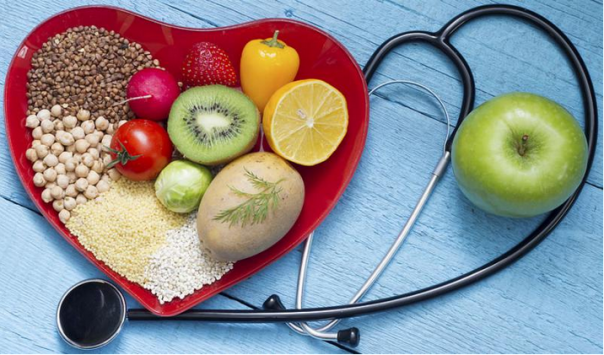
Cholesterol is a vital substance essential for brain function and the production of hormones. The substance is made in the liver, which produces 80% of the total amount in your body. It is present in all cell membranes allowing cells to keep their shape. The remaining 20% is from the food we eat, and is only found in animal products such as meat and dairy.
What many are unaware of is that there are two types of cholesterol. Dr. Glenville explains: “The interesting thing about cholesterol is that it can’t travel around your body on its own. In order to get to your cells, it is carried in your blood by combining with a protein, called a lipoprotein (lipo stands for fat).” These low-density lipoproteins (LDL’s) transport cholesterol from the liver to cells, and the excess is removed by high-density lipoproteins (HDL’s).
Having more LDL than HDL leads to cholesterol building up on artery walls, which can lead to blockages. In turn these fat-filled arteries can prevent blood from flowing to the brain and heart leading to the risk of stroke and heart attacks.
Cutting out cholesterol altogether is not the answer to lowering the amount of LDL in the body. Instead, you can increase the amount of HDL by exercising, cutting out cigarettes and cooking with olive oil. Eating soluble fibre found in oats, apples, and kidney beans can reduce the absorption of cholesterol in the blood stream and are also great sources of energy to support the body.
Cholesterol in itself is not dangerous. However, when genetic factors and high-risk habits such as eating high fat foods are added to the mix, people put themselves at risk of heart problems. Heart UK, the cholesterol charity advises a quick cholesterol test with your local pharmacist to see what lifestyle changes need to be made.
To protect the cholesterol you do have, reducing the amount of tobacco, alcohol and fried food in your diet is key. To boost antioxidants such as vitamins A, E and C, the molecules produced by these high risk factors can be neutralised. Ensuring your diet is rich in fruit and vegetables that contain these vitamins is another reason to top up your 5 a day.
For more information about National Cholesterol Month visit www.heartuk.org.uk.